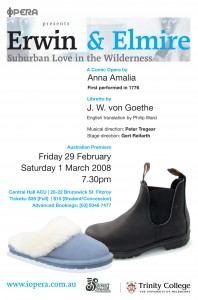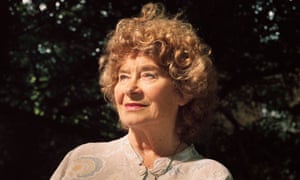
It feels like some personal stocktaking is in order. What does my writerly self have to show for himself after all these years?
Books
Encounters with Michael Arlen (Market Harborough: Troubador, 2023).
Instead of a Critic: Essays Written and Unwritten (Cambridge: Minos, 2022).
Laura Nyro... On Track (Tewkesbury: Sonicbond, 2022).
Becoming Helen Mirren (e-book: Matador, 2019).
Sandy Denny: Reflections on Her Music (Kibworth Beauchamp: Matador, 2011; new e-edition, 2019).
Hofmannsthal and Greek Myth: Expression and Performance (Oxford/Bern: Peter Lang, 2002).
Articles
'Eva Sacher-Masoch – A Life Split in Half', tanz.at, 15 December 2025.
'Robert Graves and the Music of the 1960s', The Robert Graves Review (2025).
'The Spats School of Thought', Times Literary Supplement, 10 May 2024.
'The Mystery of Mally Alexandra', Katherine Mansfield Society Newsletter 46 (December 2023), 35-8.
'A Fractured Relationship: Rebecca West and Michael Arlen', The Rebecca West Society blog (December 2022).
‘“Swarthy Syrian” or “Nimble Greek”? Huxley and Michael Arlen’, Aldous Huxley Annual 20 (2021).
‘“A very real warmth”? Hemingway and Michael Arlen’, The Hemingway Review 41.1 (Fall 2021).
‘A “Comer” or a “Second-Rater”? Fitzgerald’s Encounters with Michael Arlen’, F. Scott Fitzgerald Review 18 (2020).
‘A “Comer” or a “Second-Rater”? Fitzgerald’s Encounters with Michael Arlen’, F. Scott Fitzgerald Review 18 (2020).
‘Green Hats and Constant Nymphs Versus Life-as-It-Is: The Unlikely Friendship of Michael Arlen and D. H. Lawrence’, D. H. Lawrence Review 44.1 (2019).
‘Marianne Mitford’, The Mitford Society blog (December 2020).
‘Katherine Mansfield and Michael Arlen: A Footnote (or Two)’, Katherine Mansfield Society Newsletter 31 (December 2018), 26-29.
‘Egon Wellesz: An Opera Composer in 1920s Vienna’, Tempo, 219 (January 2002), 22-28.
‘“Bacchen des Euripides zu erneuern”: The Pentheus Project of Hugo von Hofmannsthal’, Orbis Litterarum, 55.3 (2000), 165-194.
‘Hofmannsthal, Elektra and the Representation of Women’s Behaviour through Myth’, German Life and Letters, 53.1 (January 2000), 37-55.
Poetry
'47 Redcliffe Road', in Katherine Mansfield and London, edited by Aimée Gaston and Gerri Kimber (Edinburgh: Edinburgh University Press, 2024).
'Born To Be Wild(e)', WolfWords 2024.
'The Bird-Man', WolfWords 2023.
Translations
Frank Wedekind, Mine-Haha, or On the Bodily Education of Young Girls (London: Hesperus, 2010). [Reviewed in The Guardian, 25 April 2010].
François Pantillon, Cries of the World (‘secular oratorio’, libretto, unpublished, 2009) [French-language premiere as Clameurs du monde, May 1986; no known performance in English].
Ernst Krenek, Heavyweight, or The Glory of the Nation (libretto, unpublished) [Cambridge University Opera Society, premiere, 7 December 2002].
Alexander Mosolov, The Hero (libretto, unpublished) [Cambridge University Opera Society, premiere, 7 December 2002].
J.W. von Goethe, Erwin and Elmire (libretto, unpublished) [Singspiel with music by Anna Amalia, first performance in modern times, Cambridge University Opera Society 29 January 1999; new production by iOpera, Melbourne, Australia, February/March 2008]. [Photos and programme].
Frank Wedekind, Franziska, adapted by Eleanor Brown; translation and introduction by Philip Ward (London: Oberon, 1998) [premiere, Gate Theatre, London, 13 May 1998; reviewed in The Independent, 26 May 1998; reviewed in The Times, 19 May 1998].
Reviews
Charlie Louth, Rilke: The Life of the Work, in Austrian Studies 30 (2022).
‘Egon Wellesz, Symphony No. 4 (Sinfonia Austriaca), Op. 70; Symphony No. 6, Op. 95; Symphony No. 7 (Contra Torrentem!), Op. 102. Radio Symphonieorchester Wien, cond. Gottfried Rabl,’ in: Tempo, 225 (July 2003), 49.
Nancy C. Michael, Elektra and Her Sisters. Three Female Characters in Schnitzler, Freud, and Hofmannsthal, in: Austrian Studies 11 (2003), 222-223.
George Mackay Brown, Andrina and Other Stories, in: Catholic Herald, 20 April 1984, p. 6.
The Flight of the Mind: The Letters of Virginia Woolf: Volume 1, 1888-1912, edited by Nigel Nicolson, in: Catholic Herald, 10 June 1983, p. 6.
Other
Numerous features, interviews and reviews for popular music magazine RNR, 2010-present [some republished on this blog]. Occasional contributions on music to English Dance and Song, Shindig! and Properganda.
‘A Religious Source for Newton’s Science?’ (unpublished thesis, University of Oxford, 1980; winning entry, Stanhope Historical Essay Prize, University of Oxford, 1980).
Several short stories in Oxford University magazines: Isis, Oxford Literary Journal, Envisage, 1977-9.
Numerous reports on parliamentary business and public policy issued under the imprint of the House of Commons Library, 2003-2016. Whereas Kafka’s ‘official’ writings as an insurance assessor investigating injuries to industrial workers have been slavishly studied, I doubt that my future biographers will be detained long by my ruminations on the Horserace Betting Levy Bill or the ownership of air guns in Scotland.
